In the News–Crisis Management
Victoria’s Secret Faces New Sexual Misconduct Allegations
Jordyn Holman and Kim Bhasin, Bloomberg, February 3, 2020
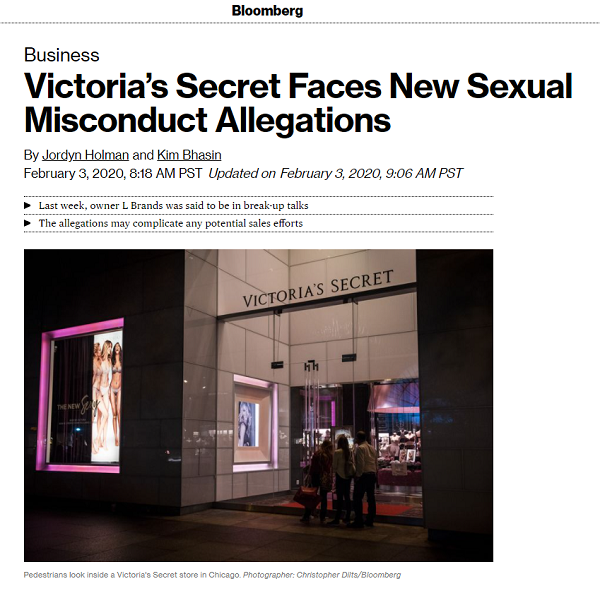
New allegations of sexual misconduct have surfaced at Victoria’s Secret as the brand tries to remake its image after years of scandal and slumping sales.
Female models and executives were bullied and harassed for decades at the lingerie chain, evidence of an “entrenched culture of misogyny,” according to a New York Times investigation published this weekend.
The revelations come days after reports that L Brands Inc., owner of the troubled retailer as well as Bath & Body Works, was in talks to break up the company and that longtime Chief Executive Officer Les Wexner could step down.
***
Davia Temin, CEO of crisis consulting firm Temin and Company, said the problems at Victoria’s Secret have become endemic, and it may need a new owner to survive. Patching up the brand by tweaking advertising won’t be enough, she said.
“Unfortunately, now Victoria’s Secret’s brand has gone to sleazy from sexy,” Temin said. “And no re-brand is going to fix that.” […read more]
Employees Speak Out—Against Their CEOs
Rachel Feintzeig, Charity L. Scott and Sharon Terlep, The Wall Street Journal, February 1, 2020
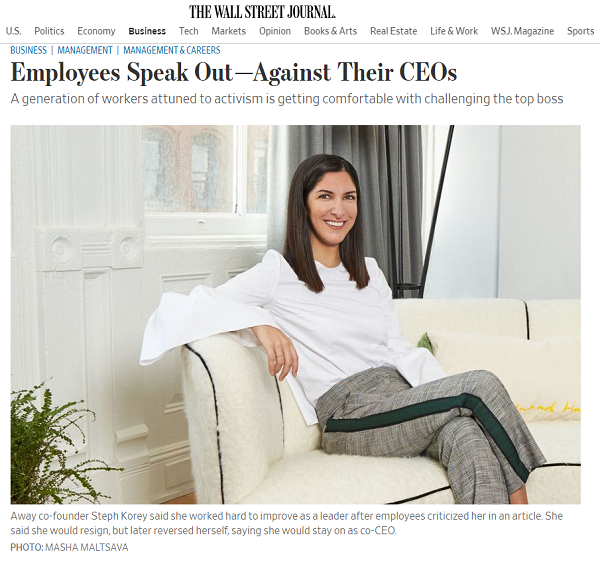
Chief executives routinely face barbs from investors and the media. Now some are dealing with criticism from a group closer to home: their own staffs.
Two recent workplace sagas—at online luggage seller Away and G/O Media, the publisher of former Gawker Media sites such as Deadspin and Gizmodo—highlight the more outspoken scrutiny that some leaders face from employees. At both companies, disgruntled workers led efforts to pressure their chief executives over behavior or decisions they didn’t like.
The top boss used to be more shielded from in-house criticism. With some exceptions, discontented employees tended to grumble among themselves or at a town hall meeting. They let labor leaders do the toughest talking, usually in pursuit of better wages or job security.
But at a time when digital forums like Slack and others are proliferating, workers aren’t just pressing employers to develop a stronger social conscience. They are taking leaders to task for their management style and, in some cases, calling for their jobs.
***
Companies are still trying to figure out how to handle crises born out of more openly critical employees, said Davia Temin, CEO of Temin and Co., a New York-based reputation and crisis-management firm.
“This is a new competency,” Ms. Temin said, “and I don’t think that it’s just a normal leadership competency that you learn in business school.” […read more]
Wells Fargo Quashes Hope That Its Scandals Are Nearly Resolved
Hannah Levitt, Bloomberg, January 27, 2020
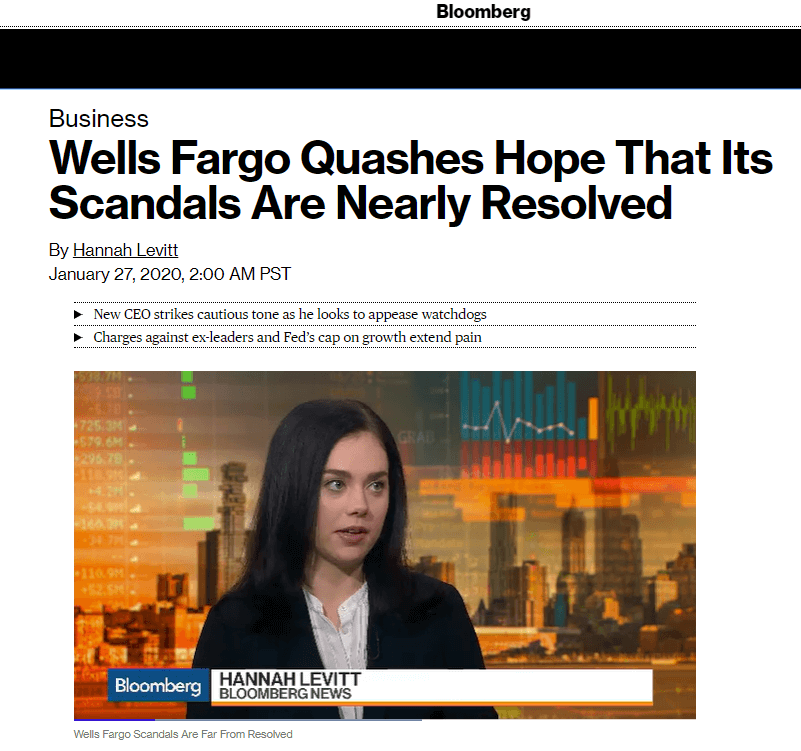
Wells Fargo & Co.’s finance chief was promising analysts they would be kept abreast of the bank’s efforts to resolve scandals when his new boss chimed in. “I just want to be clear, I’m not suggesting here that any of these public issues will be closed this year,” Chief Executive Officer Charlie Scharf said earlier this month. “The time frames will be driven by when we accomplish that work and when the regulators are satisfied by it.”
The firm has yet to reach settlements with the U.S. Department of Justice and the Securities and Exchange Commission after setting aside more than $3 billion for litigation in the second half of last year. And in its quarterly filings, the bank lists an array of other open-ended probes, investigations and sanctions including a Federal Reserve-imposed growth cap.
It’s a strikingly long tail for a scandal that began with the 2016 revelation that employees had opened millions of potentially fake accounts to meet sales goals, possibly overcharging customers by a few million dollars. That unleashed a public and political backlash that has kept Wells Fargo in a harsh light ever since.
“There’s this sort of free-floating anger and fury that’s out there in the populace, and anything that sticks its head up that’s a problem that isn’t resolved in the right way, it coalesces,” Davia Temin, founder of crisis consultancy Temin & Co., said in an interview. “That fury is magnificent — it is stunning in its destructive power.” […read more]
The Cost of MeToo Claims
Stephanie Forshee, Agenda, January 17, 2020

When supermodel Kate Upton went public two years ago and accused Guess co-founder Paul Marciano of groping her breasts — allegedly without her consent — word spread fast. Guess Inc. had been trading at $18.37 per share just a day earlier, but its stock dropped by 18% upon the news about Marciano, making it the worst trading day in six years as the company lost $250 million in value.
Due to the reputational damage brought by a MeToo claim, plus the piling on of shareholder lawsuits alleging the information was material for investors, analysts and executives have found themselves rethinking how to calculate the impact of these allegations on businesses.
Since MeToo received a platform in recent years, 285 companies have been hit with claims — 199 private companies and 86 public companies — according to Temin & Co., which tracks sexual misconduct allegations. Davia Temin, CEO of the risk and reputation firm, says, “Instead of putting their head in the sand not wanting to know, the best boards are saying, ‘We do want to know. We want to know before any problem arises.'” […read more] (subscription required)
The Ghosn Brand Is Broken. These Spin Doctors Say How to Fix It
David Heller, Corinne Gretler and Jeff Green, Bloomberg, January 12, 2020
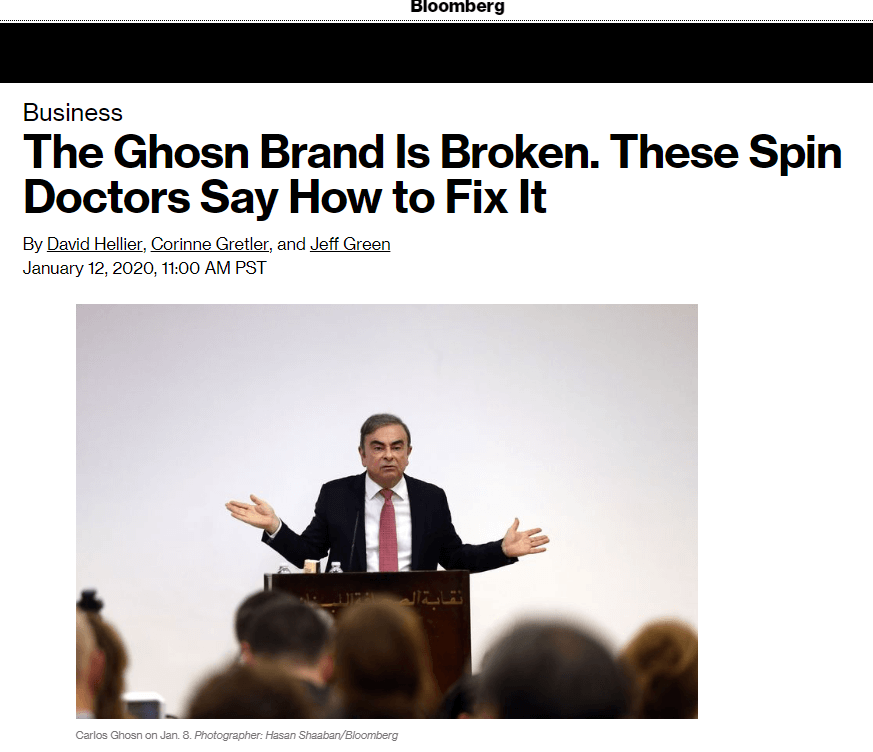
Carlos Ghosn captured the world’s attention by being spirited out of Japan in a private jet concealed in a box often used for audio equipment with the help of a security detail led by a former Green Beret. He evaded two trials on charges of financial misconduct. Now he wants to salvage his shattered reputation.
“The world does love an anti-hero,” said Davia Temin. “The world does love someone who bucks rules and regulations — if they’re a romantic figure. He has made himself into quite a romantic figure. As tempting as is it to tell his story, more and more, the risk now isn’t just that he will sour public support, but that he will do something to make himself a further target.” […read more]
Old Board Structures ‘Won’t Work Tomorrow’
Stephanie Forshee, Agenda, December 20, 2019

Agenda’s survey showed that audit committee directors have been tasked with taking the lead on cyber risks, at least according to 23.8% of survey respondents. And almost 36% of respondents feel that substantiated whistle-blower claims belong with the audit committee. Even though sexual misconduct allegations have been high-risk areas for legal recourse from shareholders, the committee of choice isn’t always with audit- or risk-focused directors.
According to the quarterly survey, 42.7% of respondents said that MeToo issues don’t belong to an individual committee but rather the full board. By contrast, 12.2% felt that MeToo issues don’t even belong in the boardroom to begin with.
But then there are the 18% who think the comp committee should be in charge of Me Too issues. Corporate governance professionals think that as an offshoot of human capital issues, cultural concerns have increasingly been landing with the comp committee.
Davia Temin, president and CEO of Temin & Co., says that in her experience with boards, the audit and risk committee members are typically the directors who primarily oversee sexual misconduct allegations, or sometimes the complaints will go to the executive committee. “A fair amount of time, those committees will inform the whole board if the issue is important enough,” Temin explains.
Temin notes that the push for boards to handle concerns of sexual harassment or misconduct is happening more frequently and is largely being driven by boards that have more women on them. “Often we find that it is women corporate directors who will champion MeToo issues being examined at the board level,” Temin says.
As for comp committees’ overseeing sexual misconduct claims, Temin thinks that responsibility should lie elsewhere, since executives subject to misconduct allegations aren’t just having their pay docked but are often being ousted from the companies if they are found guilty. “Comp committees historically have handled the issue when penalties have not included letting executives go, but instead included the forfeiture or clawback of compensation as a penalty for sexual harassment. Today, we know that this remedy is not seen to be as viable under public scrutiny as it once was. Thus, stronger measures are usually taken.”
The bottom line, in Temin’s opinion, is that “what worked yesterday no longer works today, and most assuredly will not work tomorrow.” […read more] (subscription required)
Want to Date a Colleague? Think Carefully
Vanessa Fuhrmans and Rachel Feintzeig, The Wall Street Journal, December 5, 2019
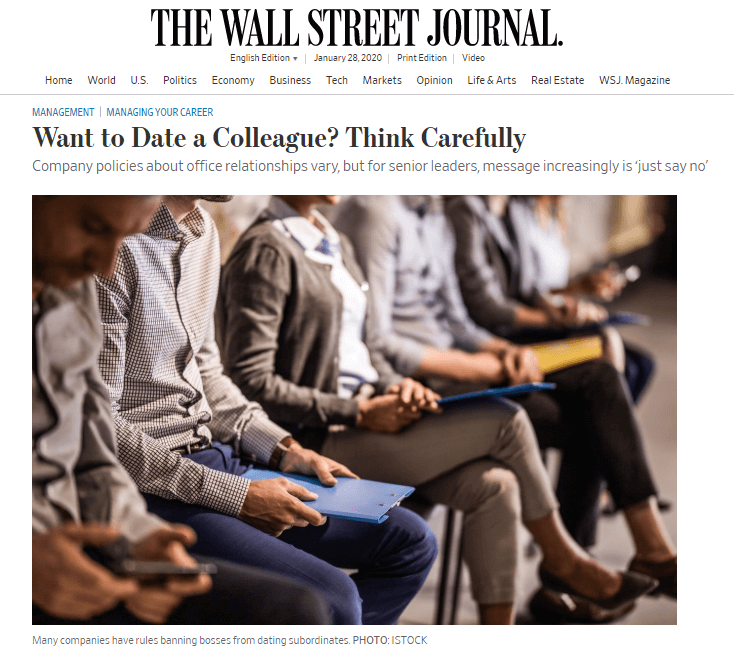
Companies have increased scrutiny of consensual relationships among colleagues in the wake of the #MeToo movement. Whatever the corporate dating policy is, the underlying message to senior executives is: Just don’t do it. Mark Wiseman, a potential successor to BlackRock Inc. Chief Executive Laurence Fink, became the latest high-level boss to run afoul of company rules on romantic relationships at work.
Increasingly, organizations are hoping relationships just don’t crop up in their offices at all, said Davia Temin, CEO of Temin and Company, a Manhattan-based reputation and crisis-management firm. Whether it is a direct message or one read between the lines, “some places are saying, ‘Just say no,'” she said.
Some companies have had longstanding policies around relationships at work, but they often weren’t well-enforced rules. That is changing. Avoiding mixing love and work is the safer choice today, Ms. Temin said. […read more]
McDonald’s wins praise for firing its CEO but reignites scrutiny over worker complaints
Amelia Lucas, CNBC, November 06, 2019
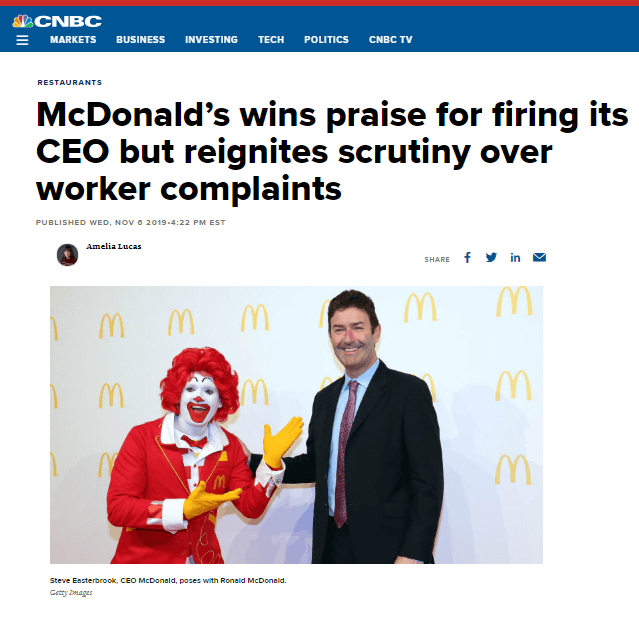
McDonald’s is garnering praise after deciding to fire its chief executive for having a relationship with an employee.
But the decision is reigniting scrutiny of the company’s handling of sexual harassment incidents that involve restaurant workers.
The Chicago-based company announced on Sunday that its board ousted CEO Steve Easterbrook for having a consensual relationship with an employee, a violation of the company’s non-fraternization policy.
“These days, what we find is boards are more worried about reputational risk, and they’re taking more action and acting more promptly,” said Davia Temin, the CEO of management consultancy Temin and Company. […read more]
Wayfair Employees Protest in Boston Over Border Camp Sales
Sammy Criscitello, Janet Wu and Jordyn Holman, Bloomberg, June 26, 2019
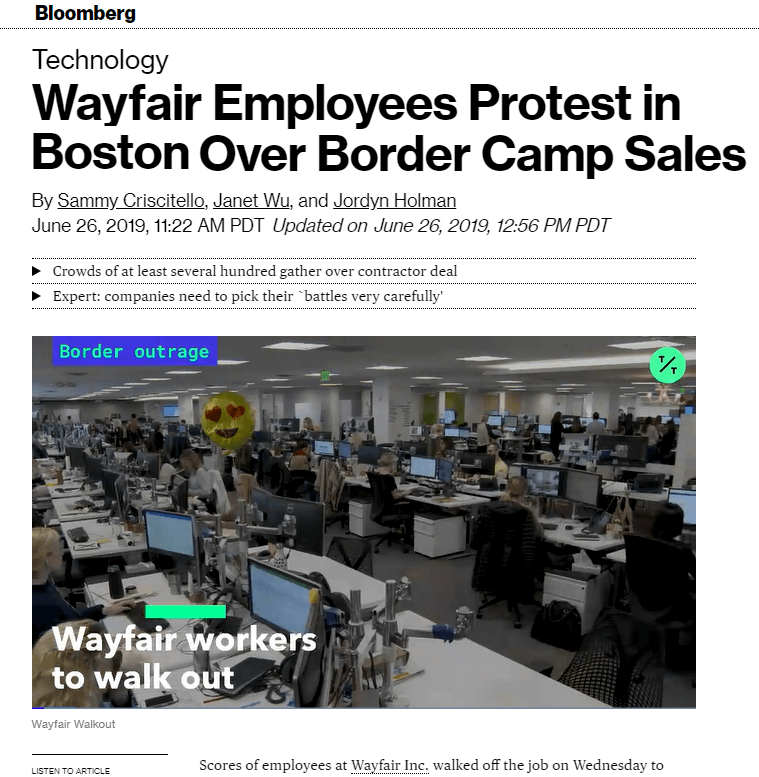
Scores of employees at Wayfair Inc. walked off the job on Wednesday to protest the online retailer’s sale of beds to contractors furnishing border camps for asylum seekers.
Wayfair is just the latest company to face intense public scrutiny from its employee base over political issues, according to Davia Temin, head of the New York-based crisis-management firm Temin & Co.
“Once you are in that spotlight, it will have an impact,” Temin said ahead of the protest. “It puts them on the wrong side of their customer base who are generally young and probably a little bit more activist.” […read more]
Have We Reached the Point of #MeToo Malaise?: The Broadsheet
Claire Zillman and Emma Hincliffe, Fortune, The Broadsheet, June 19, 2019
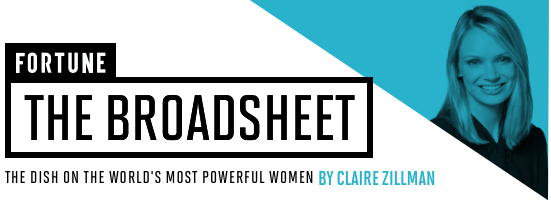
New data from crisis consulting firm Temin and Company finds that last month saw 12 high-profile allegations. That’s the lowest monthly total since claims against movie mogul Harvey Weinstein ignited the #MeToo movement in the fall of 2017 and a dramatic drop from a peak of 143 last October.
In explaining the trend, Davia Temin, the consultancy’s CEO, cited a few factors: a backlash against the movement, more sophisticated campaigns to counter accusations, and improved corporate resources that are placating the aggrieved. […read more]
More News Articles



